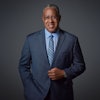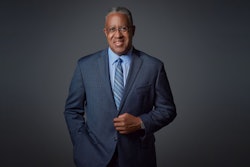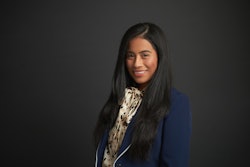I wrote a blog piece for Diverse: Issues in Higher Education in January, highlighting a panel at the Association of American Colleges and Universities’ (AAC&U) Annual Meeting (The Quality of U.S. Degrees: Innovations, Efficiencies, and Disruptions — To What Ends?) that featured out lesbian and gay presidents at four institutions of higher education. As I was listening to the panelists speak from their various positionalities and experiences that day, I kept reflecting on University of California, Santa Cruz (UCSC) former chancellor Denice Denton, whose short tenure was during my time as a graduate student at UCSC.
I was pursuing my Ph.D. in the Sociology department at UCSC in February 2005 when Denton, an open lesbian and electrical engineer by training, became our new chancellor. Denton’s arrival at UCSC came on the heels of her nationally-spotlighted critique of then Harvard University president Lawrence Summers’ remarks at the “Diversifying the Science and Engineering Workforce: Women, Underrepresented Minorities, and their S. & E. Careers” conference. During his remarks, Summers attributed innate differences as a possible reason for the divergent levels of success between men and women in STEM fields. Denton was a leader in the national critique of Summers’ statement.
Along with fellow graduate students, I was excited about Denton’s impending tenure at UCSC. She was bringing national attention to the underrepresentation of women and people of color in STEM fields (prior to Summers’ remarks, Denton was known as a fierce advocate for underrepresented groups in the STEM fields) and she was open about her sexuality. Those early, positive signs of Denton’s leadership were welcomed on a campus that was in need of stronger institutional efforts toward diversity.
Denton’s investiture in early November 2005 set even further precedence for our campus culture, using her inauguration as an opportunity to focus on the crucial connection between excellence and diversity on UCSC’s campus. By this time, however, Denton was also immersed in the UC system-wide protests against unfair treatment of service workers, tuition increases, and administrative salaries. Denton’s own compensation (along with renovations of the chancellor’s home) and the compensation of her partner (who was hired in the UC Office of the President) were heavily scrutinized.
The protests at UCSC during this period were persistent—and protestors raised important, crucial issues about the treatment and livelihood of staff, faculty, and students. Among the issues listed above, protestors also raised concerns over several prominent faculty of color leaving the institution during this time—what was this saying about our environment? Denton did not always respond to the issues or protests with a deft hand. But as a community, we were not aware that, in the midst of advocating for the well-being of our various campus members, our own chancellor’s mental well-being was crumbling.
When Denton committed suicide in June 2006 in San Francisco (Pride Weekend), we were stunned. Many of us collected en masse to the campus memorial service, spilling beyond the bounds of available seating, searching for a communal discussion on what had happened. Professor Angela Davis helped us reflect on this tragic loss at the service, and she touched upon the homophobia that partially informed Denton’s brief tenure at UCSC.
Denton was sometimes the direct target of the protests that I mentioned above. While I’m certain that anyone in the position of chancellor at UCSC would have been the subject of some of those protests, Denton was simultaneously publicly ridiculed for her physical appearance—not necessarily by the same protestors, but this extra detail sheds light on the sexism and homophobia that Denton and her partner experienced and that she continued to experience posthumously (a quick web search of “lesbian lover” + “Denice Denton” will confirm this).














